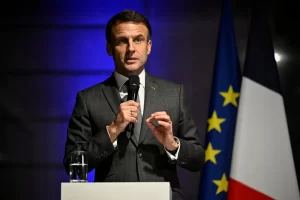
India's Supreme Court has upheld the central government's decision to revoke the special status of Jammu and Kashmir. The Supreme Court said on Monday that the decision was not 'unconstitutional'. According to this verdict, the court has ordered assembly elections in Jammu and Kashmir by September next year. The country's Prime Minister Narendra Modi has described this verdict as historic. The five-judge constitutional bench led by Chief Justice DY Chandrachud said that the special status of Jammu and Kashmir under Article 370 of the Constitution was 'temporary'. The court commented that the withdrawal of Article 370 during the President's rule is not illegal. Apart from the Chief Justice, the bench consisted of Justice Sanjay Kisan Kaul, Justice Sanjeev Khanna, Justice BR Gavai and Justice Surya Kant. Earlier, under Article 370, Jammu and Kashmir enjoyed certain privileges. In 2019, the central government revoked the special status of Jammu and Kashmir by abrogating Article 370. The former state of Jammu and Kashmir was divided into two Union Territories, Jammu and Kashmir and Ladakh. There are many cases in the Supreme Court challenging the legality of such a move by the Centre. The hearing in the Supreme Court started on July 2 by combining them. On September 5, a bench led by the Chief Justice adjourned the judgment in this regard. Following this, a five-judge bench led by Chief Justice DY Chandrachud delivered the verdict on Monday (December 11). Ladakh will remain as a Union Territory despite the status of Jammu and Kashmir state. Chief Justice Chandrachud said that the Supreme Court does not consider the decision to abrogate Article 370 to be unconstitutional. He also said, 'The special status of Kashmir through Article 370 is actually a temporary arrangement. It was implemented only temporarily.
India’s Supreme Court has upheld the central government’s decision to revoke the special status of Jammu and Kashmir. The Supreme Court said on Monday that the decision was not ‘unconstitutional’.
According to this verdict, the court has ordered assembly elections in Jammu and Kashmir by September next year. The country’s Prime Minister Narendra Modi has described this verdict as historic.
The five-judge constitutional bench led by Chief Justice DY Chandrachud said that the special status of Jammu and Kashmir under Article 370 of the Constitution was ‘temporary’. The court commented that the withdrawal of Article 370 during the President’s rule is not illegal. Apart from the Chief Justice, the bench consisted of Justice Sanjay Kisan Kaul, Justice Sanjeev Khanna, Justice BR Gavai and Justice Surya Kant.
Earlier, under Article 370, Jammu and Kashmir enjoyed certain privileges. In 2019, the central government revoked the special status of Jammu and Kashmir by abrogating Article 370. The former state of Jammu and Kashmir was divided into two Union Territories, Jammu and Kashmir and Ladakh.
There are many cases in the Supreme Court challenging the legality of such a move by the Centre. The hearing in the Supreme Court started on July 2 by combining them. On September 5, a bench led by the Chief Justice adjourned the judgment in this regard. Following this, a five-judge bench led by Chief Justice DY Chandrachud delivered the verdict on Monday (December 11).
Ladakh will remain as a Union Territory despite the status of Jammu and Kashmir state. Chief Justice Chandrachud said that the Supreme Court does not consider the decision to abrogate Article 370 to be unconstitutional.
He also said, ‘The special status of Kashmir through Article 370 is actually a temporary arrangement. It was implemented only temporarily.





